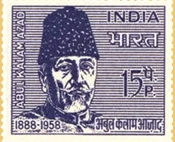![]() 26 Jul 2024
26 Jul 2024
Many countries that gained freedom from colonialism experienced non-democratic rule because leaders decided that at such a nascent stage national unity was their priority and that democracy would introduce differences and conflicts. It took various forms: nominal democracy but effective control by one leader, one-party rule, or direct army rule. Non-democratic regimes always started with a promise of restoring democracy very soon. But once they established themselves, it was very difficult to dislodge them. The conditions in India were not very different.
| In India,…. …hero-worship plays a part in its politics unequalled in magnitude by the part it plays in the politics of any other country….But in politics, .. ..hero-worship is a sure road to degradation and eventual dictatorship. –Babasaheb Dr. B.R. Ambedkar Speech in Constituent Assembly 25 November 1949 |
There are many challenges that a nation faces and it is only through democratic politics that those challenges are faced.
Establishment of the Election Commission: Election Commission of India was set up in January 1950.

| Maulana Abul Kalam Azad (1888-1958): original name — Abul Kalam Mohiyuddin Ahmed; scholar of Islam; freedom fighter and Congress leader; proponent of Hindu- Muslim unity; opposed to Partition; member of Constituent Assembly; Education Minister in the first cabinet of free India. |
| Must Read | |
| Current Affairs | Editorial Analysis |
| Upsc Notes | Upsc Blogs |
| NCERT Notes | Free Main Answer Writing |
India’s commitment to democracy, despite challenges of poverty and illiteracy, set it apart from many post-colonial nations. Unlike others, which fell into non-democratic regimes, India embraced universal adult franchise and held its first general election in 1952, proving that democracy could thrive anywhere. This bold experiment underscored that politics should prioritize public interest, and it highlighted the significant role of democratic processes in addressing national challenges.
| Related Articles | |
| Appointment of Election Commissioners | Parliamentary Democracy |
| Election System in India | Indian Group A Civil Services |
<div class="new-fform">
</div>